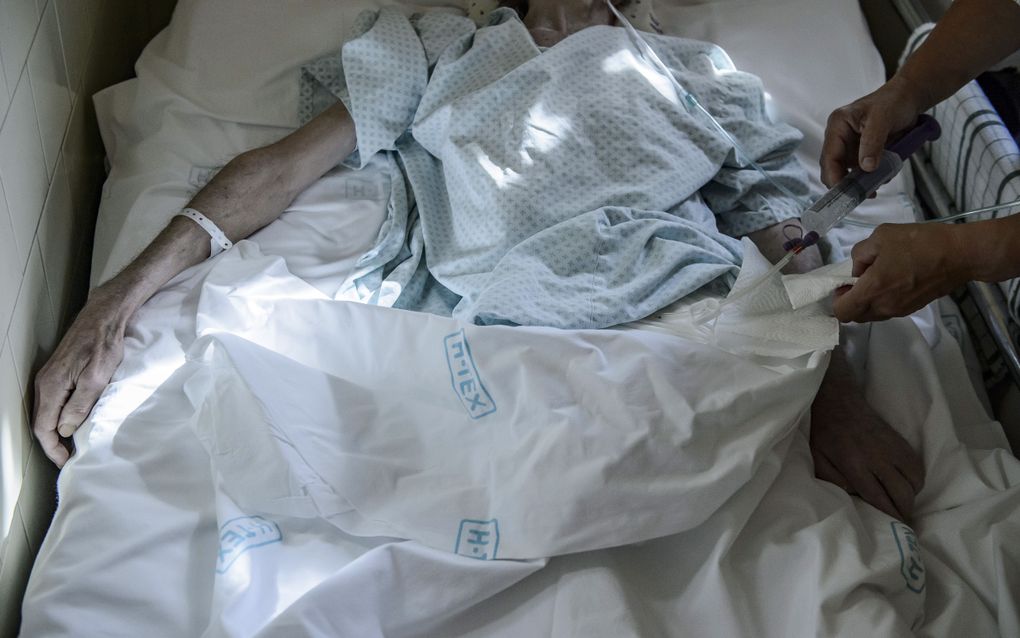Swiss health authorities issue "stricter" guidelines for euthanasia

Photo EPA, Peter Komka
Central Europe
The medical professionals and the Academy of Sciences in Switzerland have jointly revised the old guidelines on euthanasia. Euthanasia organisations are critical. Ethicist Michael Coors, on the other hand, welcomes the clarifications.
The reason for the revision is that there were gaps in the guidelines on euthanasia, the Swiss radio and television broadcaster SRF writes. So far, there have been no regulations for people who are tired of living but not terminally ill.
This gap has now been closed by the Swiss Medical Association FMH and the Swiss Academy of Medical Sciences (SAMS). Among other things, the revised paper defines more clearly when assisted suicide is justifiable. For example, there should be "severe, unbearable suffering" for euthanasia to be allowed. In addition, doctors must explicitly clarify and offer therapeutic alternatives. Furthermore, doctors should hold at least two detailed discussions – at intervals of at least two weeks – with people willing to die.
It is not the task of doctors to accompany healthy people to their death, Charlotte Schweizer from the FMH tells the SRF. "For assisted suicide to be permissible, symptoms of illness and functional limitations must cause unbearable suffering," says Schweizer.
Sanctions
The jointly adopted version of the guidelines has now been incorporated into the FMH Code of Ethics. The new set of rules has no legal validity; it merely serves as a moral compass for the doctors in their work, the Swiss Reformed web portal Ref.ch. "Nevertheless, doctors must comply with it. Otherwise, they risk sanctions", Schweizer says to the SRF.
Euthanasia organisations – first and foremost Dignitas and Exit – have voiced criticism of the changes. In a statement, they write of an "inadmissible aggravation" of assisted suicide; a delay is "simply unreasonable". According to these organisations, many people who want to die and suffer from several diseases or are very old, know about their poor prognosis and wish to avoid unbearable suffering in a well-considered way.
Michael Coors, professor of theological ethics and head of the Institute for Social Ethics at the University of Zurich, disagrees. "My first impression is that the revision of the text is very successful," says Coors in response to an enquiry from ref.ch. He welcomes the fact that some things have been formulated more; clearly, the paper is well justifiable and far more than just a compromise. "It's ethically central for doctors to be about helping because of suffering, and the paper makes that clear."
Related Articles





